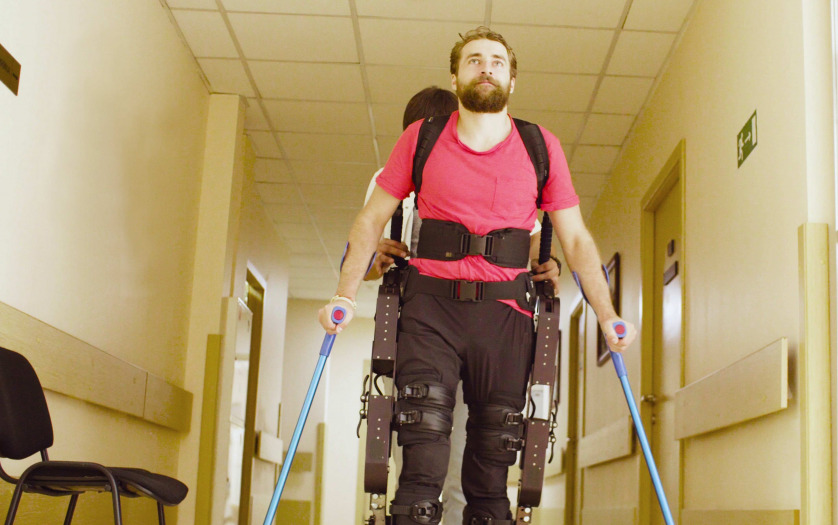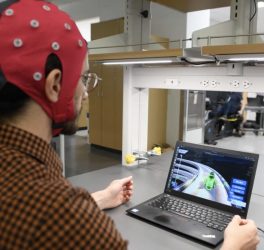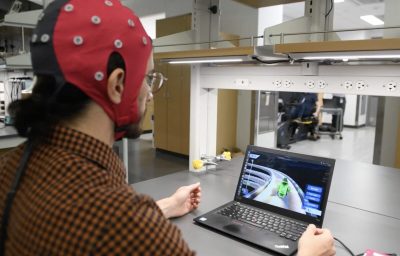
The University of Liverpool is part of an innovative project awarded £1.25M from the People’s Postcode Lottery Dream Fund to design a transformative assistive device to support and enhance upper body movement in children and young people living with progressive neuromuscular diseases.
Dr Farnaz Nickpour and her team at The Inclusionaries Lab at the University will work with Duchenne UK and Spinal Muscular Atrophy UK (SMA UK) to develop the‘SMART Suit’ – a first of its kind exoskeleton suit to help disabled teenagers and young people use their arms and upper body.
The SMART Suit is an ambitious and highly innovative assistive technology design project with the potential to improve quality of life for a wide range of people living with neuromuscular diseases and disabilities. It aims to give people living with Duchenne muscular dystrophy (DMD), a progressive muscle-wasting disease which typically affects young boys, and other progressive diseases, back their strength, independence and dignity.
Dr Farnaz Nickpour, Director of The Inclusionaries Lab, said: “This is a unique and timely opportunity to address a long-term ‘wicked problem’ in the design and commercialisation of impactful and desirable solutions for important parts of our society currently disserved by innovation.
“Good design is people-centred and technology-enabled, improves quality of life and actively contributes to a more fair and equitable society. Through our innovative collaboration with Duchenne UK and SMA UK charities, we want to ensure advanced inclusive and human-centred design principles are embedded in the SMART Suit, and moreover, make our interdisciplinary approach and processes in this project, accessible and applicable in many other areas similarly in need of better more systemic solutions.”
The project is one of only 3 chosen for the People’s Postcode Lottery Dream Fund, which recognise innovative, impactful and collaborative projects.
The initial prototype was developed by Solid Biosciences. Duchenne UK will take on the development of the Suit and develop a strategy to bring it to market.
“We are absolutely thrilled to receive this transformative grant which will have a truly game changing impact on young lives.
For people living with progressive conditions like DMD and SMA, losing upper body function means losing the ability to feed yourself, put your hand up in class, or hug your loved ones.
Despite incredible technological progress elsewhere, this is a problem that has gone without true innovation in the last 30 years. Because of this, people living with upper-limb disability face barriers in work, education, and their social lives.
With the help of this grant, we can finally change this. A huge thank you to the players of the People’s Postcode Lottery and the Dream Fund for enabling our dream project to become a reality.” said Emily Reuben, CEO of Duchenne UK
For more information, go to https://inclusionaries.com








